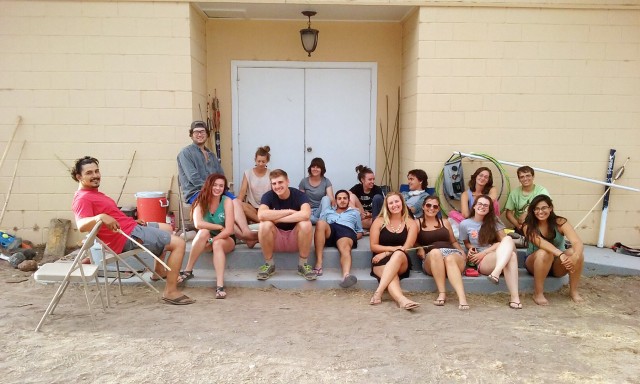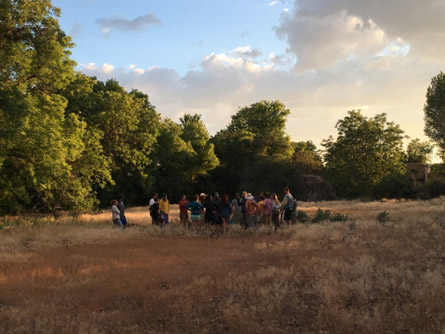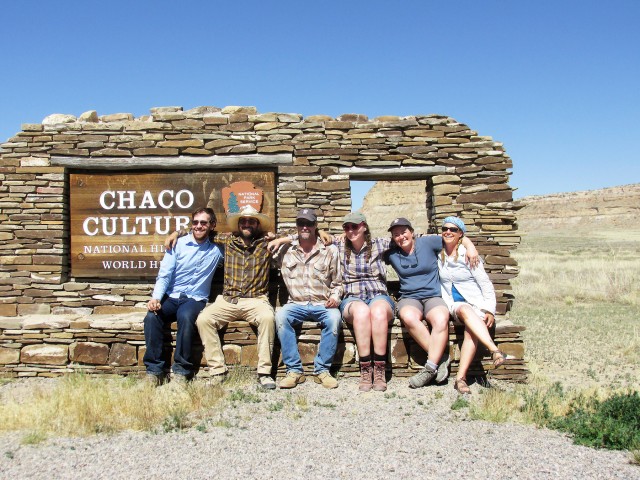- Home
- >
- Preservation Archaeology Blog
- >
- Chasing the Past
Lindsay Romo, Cochise College
(June 11, 2016)—Advancing knowledge of past people’s lives, beliefs, and practices for future research is one of Preservation Archaeology’s main goals. Leaving parts of the past for future excavations ameliorates the process of understanding what really took place within a site. We only have so much knowledge at this present time, and every person who has ever lived, is living, and will live has the ability to make new interpretations.
These interpretations may carry momentous weight, but my biggest question about these interpretations is: what do we choose to believe? And how did we reach these conclusions? Making sense of the world around us is something humans have been trying to do since our species began. What are we doing here? How did we get here? What is our purpose? Who was here before us, and how did they live their lives?
Archaeology is a crucial part of answering these questions because we must use the information before us to understand the way life used to be. Our history allows us to understand why we may be the way we are today. Our thirst for knowledge seems to be unquenchable. It’s as if every perspective from all cultures is a concoction made to flow down our throats until we’re drunk enough with curiosity to search for every possibility. It’s an insatiable need to understand and answer the cosmological, epistemological, and existential questions of humanity’s genealogy.

Coming to this field school, I had absolutely no background in archaeology. I was a clean slate, an open-armed vacuum that absorbed any information from other students and instructors at all times. I had no idea that I would be living with 20 other people who manage to bring a new light to every situation that falls upon us. From touring sites around Tucson, to traveling to northwest New Mexico, and spending grueling hours in the unforgiving sun, each of us has walked away with something learned, and left a piece of ourselves in each other’s memories.
I’ve personally struggled with the idea that nothing we learn is truly objective. We’re confined to our bodies and our own minds, and the objective world is filtered through our subjective lenses. How could we ever truly know what’s real? Why do we have these constant dichotomies of up and down, left and right, right and wrong? Why not both? Why not neither? Why not a dash of hers, a pinch of his, and mixture of everyone’s perspective to make the most objective sense of any notion? Archaeology has taught me that we simply don’t have the privilege of utterly objective answers. Instead, we’ve no choice but to use our best guess, our most advanced ideas, and everyone’s minds to make sense of the past in our present state.
Hundreds of years down the road, archaeologists will be looking at our architectural remains, our shattered jewelry, and our bones that once held together a meaningful life. What else will we leave for them to find, just as those before us left parts of themselves?
I’ve asked a handful of both students and instructors why they’re interested in archaeology. The number one answer? It’s a mystery of finding the pieces of past’s puzzle. We study anything from the everyday economics and ritual practices to how houses were made and the pottery within them. Why are archeologists so obsessed with the past? Friedrich Nietzsche once wrote, “He who has a why to live can bear almost any how.” I agree in that these chasers of the past found a will to make sense of what once was in order to find a way to further the knowledge of today.
To everyone who has, is, and will be spending their lives partaking in such a task, thank you. Thank you for your research and your pursuit of knowledge for those who are yet to come.
Explore the News
-
Join Today
Keep up with the latest discoveries in southwestern archaeology. Join today, and receive Archaeology Southwest Magazine, among other member benefits.

